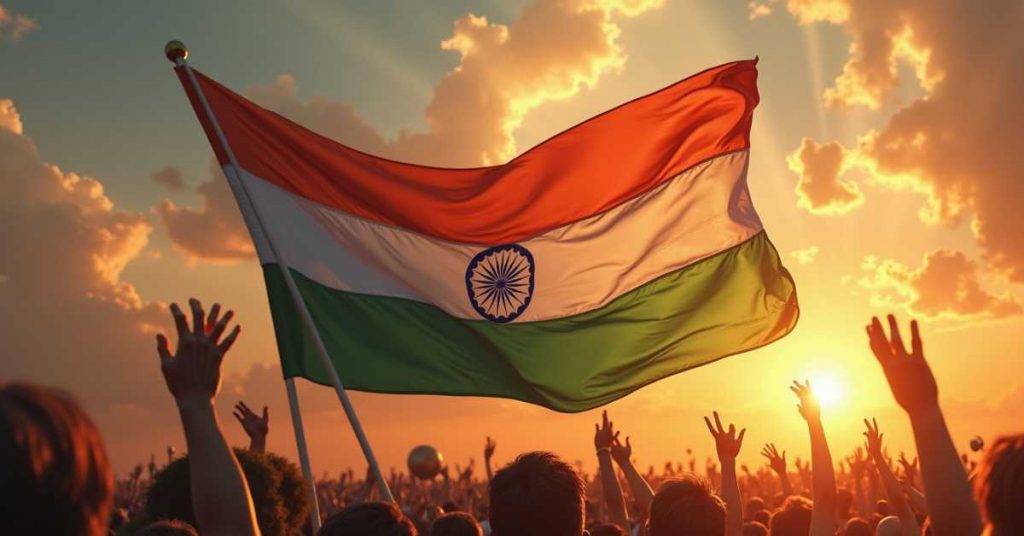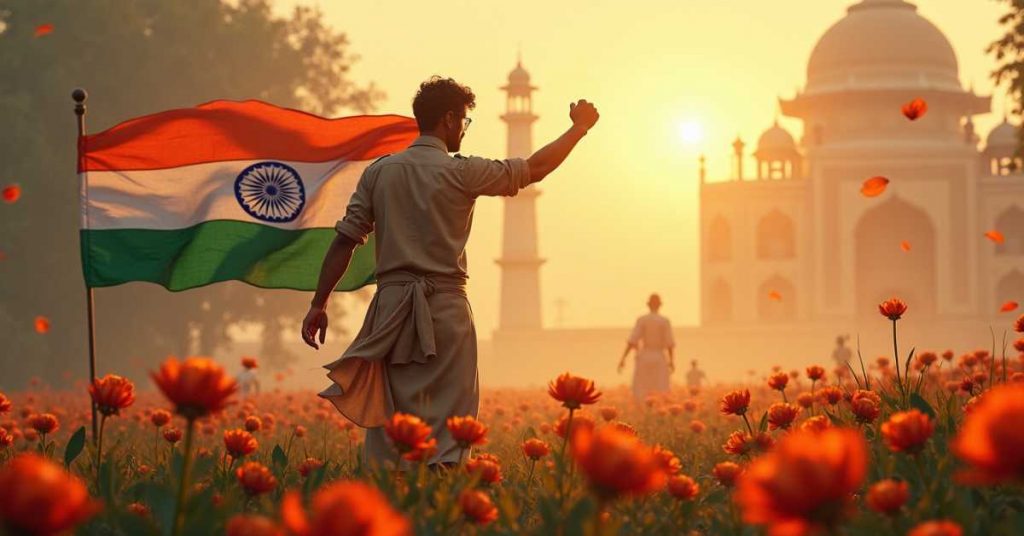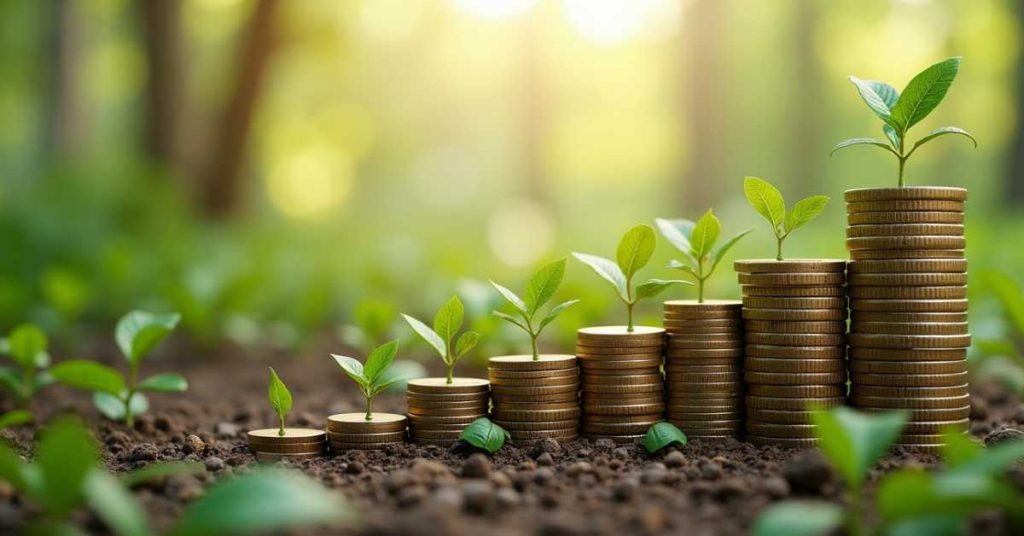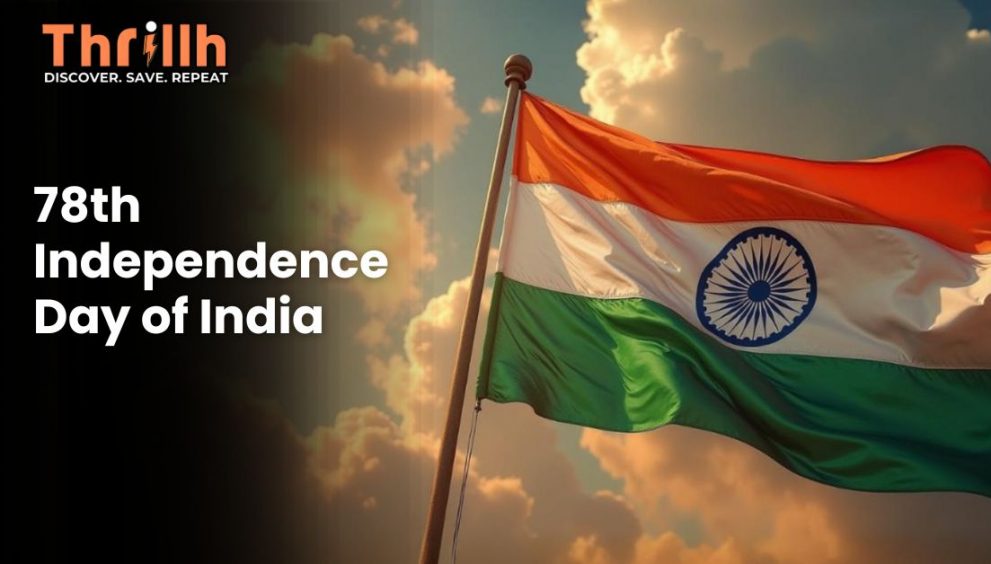Introduction
On August 15, 2024, India will celebrate its 78th Independence Day. This day commemorates the end of British colonial rule in 1947 and marks the beginning of India’s journey as a sovereign nation. Independence Day is more than just a national holiday; it is a day of pride, reflection, and forward thinking.
As we prepare to celebrate this significant occasion, it is essential to delve deep into the history, significance, achievements, challenges, and future aspirations of the nation. This article provides a comprehensive analysis of India’s Independence Day, offering insights into its historical context, annual celebrations, and the road ahead as India approaches its 100th year of independence.
A Brief History of India’s Struggle for Independence

Colonial Rule in India
The British East India Company established its presence in India in the early 17th century, gradually expanding its control over the Indian subcontinent. Following the Battle of Plassey in 1757, the company gained political and military control over large parts of India.
The British government took direct control of the country in 1858 after the Indian Rebellion of 1857, commonly known as the First War of Independence. This period of colonial rule was marked by economic exploitation, social disruption, and cultural erosion, which fueled the desire for self-rule among Indians.
The Rise of the Independence Movement
The Indian independence movement was a series of events and efforts by various leaders and organizations over several decades.
The movement gained significant momentum in the early 20th century under the leadership of Mahatma Gandhi, who advocated for non-violent resistance through his philosophy of Satyagraha. Key movements such as the Non-Cooperation Movement (1920-22), the Civil Disobedience Movement (1930-34), and the Quit India Movement (1942) played a crucial role in galvanizing public opinion against British rule.
Leaders like Jawaharlal Nehru, Subhas Chandra Bose, Sardar Vallabhbhai Patel, and Bhagat Singh were instrumental in shaping the course of the struggle. These leaders, along with countless unnamed freedom fighters, laid the foundation for an independent India.
The Road to Independence
The demand for independence became more pronounced after World War II, as the British Empire weakened.
The Indian National Congress, under the leadership of Nehru and Patel, continued to press for independence, while Bose’s Indian National Army took a more militant approach.
The combination of internal resistance, international pressure, and changing global dynamics eventually led to the British decision to grant India independence.
On August 15, 1947, India was declared a free nation. However, independence came with the partition of the country into India and Pakistan, a traumatic event that led to widespread violence and displacement. Despite these challenges, August 15 remains a day of immense pride and national unity.
Significance of August 15

National Pride and Unity
Independence Day is a symbol of national pride and unity. It serves as a reminder of the sacrifices made by freedom fighters and the collective efforts of millions of Indians to achieve freedom. The day fosters a sense of belonging and shared identity among citizens, transcending regional, linguistic, and cultural differences.
A Reflection on Democratic Values
The significance of August 15 also lies in its reflection on the democratic values enshrined in the Indian Constitution.
India is the world’s largest democracy, and Independence Day serves as a reminder of the importance of safeguarding the rights and freedoms of its citizens.
The day is an opportunity to reflect on the progress made in upholding these values and the work that still needs to be done.
A Day of Celebration and Reflection
While Independence Day is a day of celebration, it is also a time for reflection. It encourages citizens to look back on the nation’s journey, acknowledge the achievements, and contemplate the challenges ahead. It is a day to renew the commitment to building a stronger, more prosperous, and inclusive India.
Themes and Celebrations in 2024

The theme for 2024: “India at 100: Vision for a Developed Nation”
Each year, the Indian government selects a theme for Independence Day celebrations that reflects the nation’s priorities and aspirations.
In 2024, the theme is expected to focus on “India at 100: Vision for a Developed Nation.” This theme emphasizes the goals and aspirations as India approaches its centenary of independence in 2047.
It highlights the nation’s commitment to becoming a developed country, with a focus on sustainable development, innovation, and inclusive growth.
Flag Hoisting Ceremony
The centerpiece of Independence Day celebrations is the flag-hoisting ceremony at the Red Fort in New Delhi.
The Prime Minister of India hoists the national flag, followed by the singing of the national anthem and a 21-gun salute. This ceremony is a powerful symbol of India’s sovereignty and the unity of its people.
Parades and Cultural Programs
The Independence Day parade is a grand display of India’s cultural diversity, military strength, and technological advancements.
The parade includes performances by schoolchildren, cultural troupes, and military personnel, showcasing the rich heritage and vibrant spirit of the nation.
The armed forces and paramilitary forces also participate in the parade, demonstrating their discipline and dedication to the nation.
Illumination of National Monuments
On the eve of Independence Day, prominent national monuments such as India Gate, Qutub Minar, and the Gateway of India are illuminated in the colors of the national flag.
This tradition adds to the festive atmosphere and serves as a visual representation of the nation’s unity and pride.
Celebrations Across the Country
Independence Day is celebrated with great enthusiasm across the country. Schools, colleges, and communities organize various events, including flag-hoisting ceremonies, cultural programs, and sports competitions.
Citizens decorate their homes and public spaces with the tricolor, and patriotic songs and slogans fill the air.
India’s Achievements Since Independence

Economic Growth and Development
Transformation into a Major Economy
Since gaining independence, India has undergone a significant transformation from an agrarian economy to a major global economic power.
In 1947, India was primarily an agricultural economy with a limited industrial base. Today, India is the world’s fifth-largest economy, with a diverse and robust industrial sector, a thriving services industry, and a growing digital economy.
Infrastructure Development
One of India’s most significant achievements is the development of its infrastructure. The country has made substantial progress in building roads, railways, airports, and ports.
The construction of the Golden Quadrilateral, a network of highways connecting major cities, has improved connectivity and boosted economic growth. Additionally, India’s ambitious infrastructure projects, such as the Smart Cities Mission and the Bharatmala project, are paving the way for sustainable urban development.
Advances in Science and Technology
Space Exploration
India’s space program is a testament to the nation’s scientific prowess. The Indian Space Research Organisation (ISRO) has achieved remarkable milestones, including the successful launch of the Mars Orbiter Mission (Mangalyaan) in 2013, which made India the first country to reach Mars on its first attempt. In 2024, ISRO continues to push the boundaries of space exploration with the Gaganyaan mission, which aims to send Indian astronauts into space.
Information Technology Revolution
India’s IT industry is another significant achievement since independence. The country has become a global leader in software development, IT services, and business process outsourcing.
Cities like Bengaluru, Hyderabad, and Pune have emerged as major IT hubs, attracting investments from multinational corporations and contributing to India’s economic growth.
Social and Cultural Progress
Education and Literacy
India has made significant strides in improving access to education and increasing literacy rates. At the time of independence, India’s literacy rate was just 12%.
Today, it stands at over 74%, with initiatives like the Right to Education Act ensuring that every child has access to free and compulsory education. The government has also launched various programs to promote higher education and skill development, contributing to the country’s human capital development.
Healthcare Improvements
India has made substantial progress in healthcare since independence. The eradication of diseases like smallpox and polio, and the reduction in infant and maternal mortality rates, are significant achievements.
The introduction of the National Health Mission and the Ayushman Bharat scheme has improved access to healthcare services, particularly for the underprivileged.
Diplomatic and Global Influence
India’s Role in International Organizations
India’s diplomatic influence has grown significantly over the years. The country is a founding member of the United Nations and has played an active role in various international organizations, including the World Trade Organization (WTO), the International Monetary Fund (IMF), and the World Health Organization (WHO).
India’s leadership in initiatives like the International Solar Alliance and its commitment to addressing climate change have further strengthened its global standing.
Strategic Partnerships and Regional Influence
India has developed strategic partnerships with major global powers, including the United States, Russia, Japan, and the European Union.
These partnerships have enhanced India’s defense capabilities, economic growth, and technological advancements. Additionally, India’s influence in South Asia and the Indian Ocean region has grown, with the country playing a key role in regional security and economic cooperation.
Challenges Facing India
Economic Disparities and Poverty
Income Inequality
Despite impressive economic growth, India continues to grapple with significant income inequality. The gap between the rich and the poor has widened, with a large portion of the population still living in poverty.
Addressing income inequality and ensuring equitable distribution of resources remain critical challenges for the country.
Rural-Urban Divide
The rural-urban divide is another challenge that India faces. While urban areas have witnessed rapid development, many rural areas still lack basic infrastructure, healthcare, and education facilities.
Bridging this gap and ensuring balanced development across the country is essential for achieving inclusive growth.
Environmental Concerns
Climate Change
India is one of the countries most vulnerable to the impacts of climate change. Rising temperatures, erratic rainfall patterns, and increasing frequency of natural disasters pose significant threats to the country’s agriculture, water resources, and overall economy.
The government has initiated various measures to combat climate change, including the National Action Plan on Climate Change, but more needs to be done to mitigate its effects.
Pollution and Environmental Degradation
Environmental degradation, particularly air and water pollution, is a major concern in India. Rapid industrialization, urbanization, and population growth have led to significant environmental challenges.
Addressing pollution and promoting sustainable development practices are crucial for ensuring a healthy environment for future generations.
Social Challenges
Healthcare Accessibility
While India has made progress in healthcare, access to quality healthcare services remains a challenge, especially in rural and remote areas.
The healthcare system is burdened by a shortage of medical professionals, inadequate infrastructure, and limited access to essential medicines. Strengthening the healthcare system and ensuring universal access to healthcare are critical for improving public health outcomes.
Education Quality
Although India has made significant strides in increasing literacy rates, the quality of education remains a concern.
Many schools, particularly in rural areas, lack basic facilities, trained teachers, and access to quality learning materials. Improving the quality of education and addressing the challenges in the education system are essential for building a skilled and knowledgeable workforce.
Political and Governance Challenges
Corruption
Corruption remains a pervasive issue in India, affecting various sectors, including politics, business, and public services. It undermines public trust in institutions, hampers economic growth, and exacerbates inequality.
Strengthening anti-corruption measures, promoting transparency, and ensuring accountability are crucial for addressing this challenge.
Governance and Bureaucracy
India’s complex bureaucracy and governance system often result in inefficiencies, delays, and red tape. Streamlining administrative processes, improving governance structures, and promoting e-governance initiatives are essential for enhancing the efficiency and effectiveness of government services.
Vision for the Future: India at 100
Sustainable Development and Environmental Conservation
As India approaches its centenary of independence in 2047, sustainable development and environmental conservation will be key priorities.
The country aims to achieve a balance between economic growth, social equity, and environmental protection. This vision includes promoting renewable energy, reducing carbon emissions, and ensuring the sustainable use of natural resources.
Innovation and Technology
Innovation and technology will play a critical role in shaping India’s future. The government aims to leverage emerging technologies such as artificial intelligence, robotics, biotechnology, and quantum computing to drive economic growth, improve public services, and enhance the quality of life for its citizens. Initiatives like Digital India and Make in India are expected to play a pivotal role in achieving this vision.
Inclusive Growth and Social Justice
India’s vision for the future includes achieving inclusive growth and social justice for all its citizens. This involves addressing the needs of marginalized communities, reducing poverty and inequality, and ensuring equal opportunities for all.
The government plans to implement policies and programs that promote social inclusion, empower women, and uplift disadvantaged sections of society.
Strengthening Global Leadership
India aspires to strengthen its position as a global leader by enhancing its diplomatic influence, promoting peace and security, and contributing to global governance.
The country aims to play a more significant role in international organizations, advocate for the interests of developing countries, and promote global cooperation on issues such as climate change, trade, and security.
Education and Human Capital Development
Investing in education and human capital development will be crucial for achieving India’s long-term goals.
The government plans to reform the education system, promote research and innovation, and ensure that every citizen has access to quality education and skill development opportunities. This vision includes creating a knowledge-based economy that can compete on a global scale.
Healthcare and Wellbeing
Ensuring the health and well-being of its citizens will be a top priority for India as it approaches its centenary.
The government aims to build a robust healthcare system that provides universal access to quality healthcare services, addresses public health challenges, and promotes preventive care.
The focus will also be on improving nutrition, sanitation, and access to clean water to enhance overall public health outcomes.
Conclusion
As India prepares to celebrate its 78th Independence Day on August 15, 2024, it is a time to reflect on the nation’s remarkable journey since 1947.
From overcoming colonial rule to emerging as a global power, India’s achievements are a testament to the resilience and determination of its people.
However, the journey is far from over. The challenges facing the country, including economic disparities, environmental concerns, and social issues, require continued effort and commitment.
The vision for India at 100 is ambitious and forward-looking, aiming to transform the nation into a developed, inclusive, and sustainable society.
As we celebrate this Independence Day, let us renew our commitment to building a stronger, more prosperous, and equitable India. The road ahead may be challenging, but with unity, determination, and a shared vision, India can achieve its goals and realize its full potential.
Context and Reference Links
- India’s Economic Growth: World Bank Data on India’s Economy
- ISRO’s Space Missions: ISRO Official Website
- Right to Education Act: Government of India – Ministry of Education
- National Health Mission: National Health Mission – Government of India
- Climate Change Initiatives: Ministry of Environment, Forest and Climate Change – Government of India
- Digital India Initiative: Digital India Official Website
- India’s Role in International Organizations: Ministry of External Affairs – Government of India
- Bharatmala Project: National Highways Authority of India




